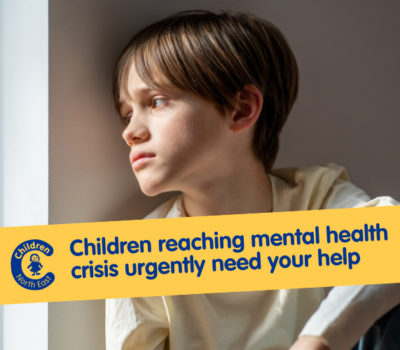Hidden costs of learning in lockdown
Low-income families are the hardest hit by school closure costs according to our Cost of the School Day partners, Child Poverty Action Group.

The findings demonstrate that more support is needed for children and parents during current and future disruptions to school life.
The survey shows:
- 40% of low-income families report they were missing at least one essential resource to support their children’s learning – one third of the families who are most worried about money have had to buy a laptop, tablet or other equipment.
- Replacement of free school meals is greatly valued by parents and has been critical to helping families make ends meet. Payments directly into parents’ bank accounts are much more popular than a voucher scheme. 81% of families receiving direct payments said this was working extremely or very well for them, compared with 60% of families receiving vouchers that can be spent in more than one supermarket, 46% of families having food delivered, 36% of families collecting food and 35% of families receiving vouchers cards usable in only one supermarket
- Children and young people value contact with teachers and classmates – secondary school pupils were more likely to report doing ‘a lot’ of schoolwork at home if they are regularly keeping in touch with teachers.
- When children can go back to school parents’ primary concern is children’s wellbeing. Emotional support for returning children was deemed by parents to be the most important factor. When asked how schools can help, one in three raised this as a top priority.
The survey of 3600 parents and carers and 1300 children and young people in England, Scotland and Wales was carried out by CPAG’s ‘UK Cost of the School Day’ project, run in partnership with Children North East, during May 2020. It explored experiences of learning during lockdown, to understand how families – particularly those on low incomes – were supported when the Covid-19 pandemic forced schools across the UK to close their doors to the majority of pupils.
Negative outcomes magnified by Covid crisis
It found that Covid-19 magnified some of the factors that contribute to negative outcomes associated with children growing up in poverty. The low-income parents and carers responding to the survey were just as likely to be concerned with helping their children to continue learning through lockdown.
However, they reported facing significantly more stress and worry around home learning and household finances than parents and carers in better off homes.
Alison Garnham, Chief Executive of CPAG said:
“All parents want the best for their children and to support their learning. As we move towards new approaches to schooling, such as a mix of home and school-based learning, the school day must be poverty proofed regardless of where learning is taking place so that all children can take part in the whole curriculum.”
Luke Bramhall, Children North East’s School Research and Delivery Service Manager, added:
“It’s really powerful understanding the challenges that families and their children have been facing and, while schools have been working incredibly hard to support their most vulnerable children, this report gives us a great deal of learning that will help us to support schools as they begin to shape their ‘new normal’.”
Key findings
Other key findings in the report, entitled ‘The Cost of Learning in Lockdown – family experiences of school closures’ include:
● Around a third of all families who responded said that they were enjoying learning at home, and these families were much less likely to report having money worries or lacking the resources they needed. Families who were worried about money were more likely to say they found it difficult to continue their children’s education at home.
● Children and young people valued being able to communicate with their teachers online, but phone calls were also highly appreciated by those that had received them. Parents and carers valued schools that took the time to understand their particular circumstances and offer personalised support.
● Pupils who said that they were having infrequent or no contact with their schools reported doing much less work. Pupils who reported doing a lot of work at home were more likely to report that their schools had provided them with the resources to help them work at home.
● Socioeconomic status did not hugely influence parental views about returning to school. Many were supportive of a gradual, phased approach with a primary emphasis on social and emotional support.
The surveys found that the Covid-19 pandemic has been a hugely varied experience for families across the UK. Schools are likely to find that pupils are coming back to class having lived through very different lockdown experiences over the last few months. While learning loss and inequitable academic progress rightly concern educators and policymakers, parents and young people have told us they are equally concerned with the longer-term effects of increased social isolation and household stress.
Families believe that schools have a vital role to play in helping children come to terms with the pandemic and the disruption it has caused to their childhoods. More than anything, children and young people told us they are desperate to reconnect with their friends. They view returning to school as their main opportunity to do this, and educators are now faced with the challenge of managing these expectations, while ensuring safety in their schools.
Calls to action
Support with costs and resources
- Increase child benefit by £10 per child per week.
- Provide all children with the learning tools needed for the curriculum, at home or at school.
- Schools should be properly funded to remove barriers to learning.
- Information regarding financial support and entitlements must reach families.
- Alternatives to free school meals: (The report was written before the Government’s announcement on free school meal provision following Marcus Rashford’s intervention). Cash payments should replace the value of free school meals.
- The earnings threshold for eligibility for free school meals should be urgently reviewed.
Supporting pupil wellbeing
- Schools should maintain regular contact with pupils and families to support learning and wellbeing.
- Schools should implement poverty aware approaches, policies and practices as pupils return.
Returning to school
- Children and young people want to spend time with their friends and teachers and feel ‘normal’ again.
- Families must be involved in planning for the return to school.



















